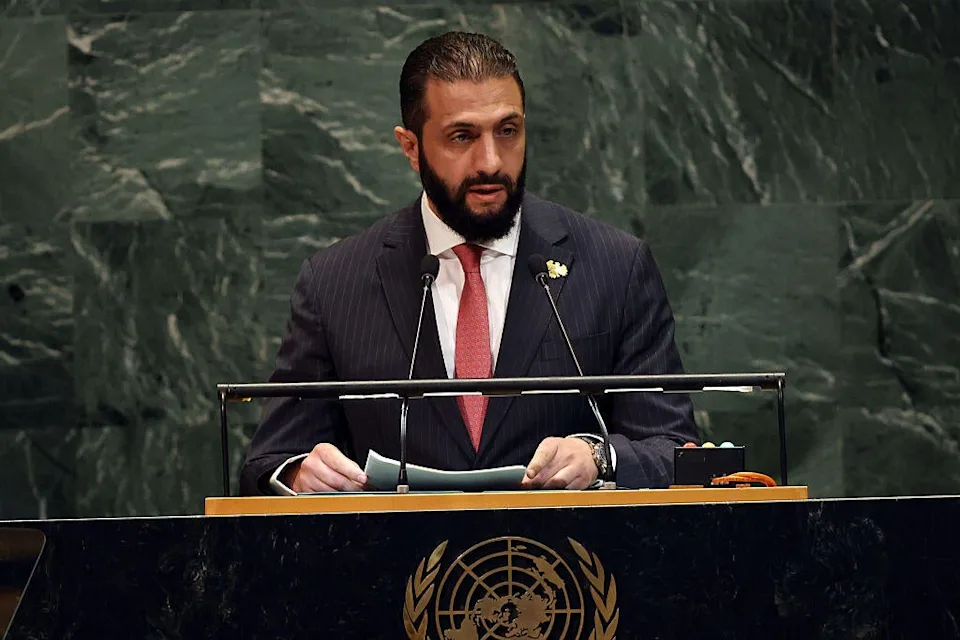Syrian President Ahmed al-Sharaa expressed concerns that Israel’s conduct may jeopardize the interests of the United States and its partners.
In an interview with CBS News, al-Sharaa highlighted potential ramifications of Israel’s decisions, suggesting they could cause a rift between the U.S. and its allies.
There is tension in the Middle East, with animosities and territorial disputes persisting. The dynamics of the region require navigation from the international community.
Many countries, including the U.S., find themselves in positions as they work to support relations among Middle Eastern nations.
Al-Sharaa’s comments come amid conflicts and disputes in the region. Israel’s actions, according to the Syrian President, have been perceived as aggressive toward some neighboring nations. These actions include military operations, territorial claims, and measures that have sparked alarm among Israel’s neighbors.
The Syrian government views these actions as a threat to regional stability. Al-Sharaa emphasized that the effects of these decisions could extend beyond the Middle East, affecting political alliances and security arrangements. The Syrian leader’s remarks underscore concerns shared with countries in the region about maintaining peace and fostering cooperation.
The United States has played a role in the Middle East, often acting as a mediator in conflicts. Its partnerships with countries such as Israel influence economic, military, and diplomatic engagements in the area. The reliance on these alliances underscores their importance, not only for regional stability but also for international relations.
Al-Sharaa’s warning raises questions about how the United States will address discord arising out of its association with Israel.
The U.S. has a relationship with Israel, providing military aid and political support over decades. This partnership has been a central aspect of U.S. foreign policy in the region.

